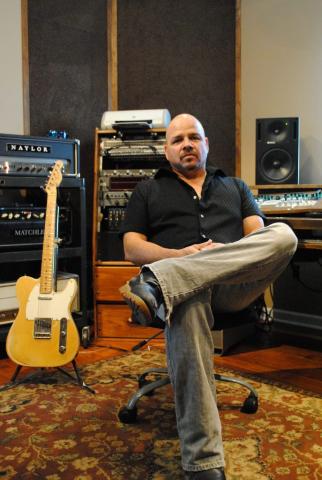
The guitar player for Garth Brooks since 2000 and for Trisha Yearwood since 1991, he owns two publishing companies on Music Row, is also a songwriter, and has a long list of production credits. This episode is a MUST LISTEN, as he covers everything from touring to publishing to songwriting, studio sessions, trying to get songs cut, and breaking into the business.
“I think that if you are not in the top leagues of the songwriters community in Nashville, the thing to do is go around town, find the higher level of venues to do writers rounds that have the higher level of writers rounds. You can introduce yourself to the writers because the writers are there to meet people. They are not just there to play their songs. A lot of these writers have had success and they’re looking for that new star, looking for someone to hit the ground running who has a lot of potential as an artist.”
“You definitely can't just stay in your apartment and keep writing songs without getting out there and meeting the people because you won't get anywhere. As good a song as you write or as good a singer you are, you have got to find a way to connect yourself to people that can make a difference.”
“When you get to that audition, your personality is very important. How likeable are you? Pour your heart out in that instrument. Don't worry about being a hot rod guitar player. Be a great musician and good things will happen.”
“It is better to record your song acoustically than, let’s say, a couple of acoustic guitar tracks, percussion tracks, by a guitar player that plays really well, (has) good time, good feel, good tone. And then do a good voice on it. That is way more powerful than a full demo with a bunch of sloppy tracks on it.”
“What I like to see in a song from new writers is to try to get to that chorus by 45-50 seconds. If you’re getting through the first chorus in a minute and 30 seconds you’re done. Nothing good is going to come out of that. The focus of a song, when you get a verse you got the central idea. This is the name of the song a lot of times. You'll write an amazing line, let’s just say we are talking about a storm on a verse, and if in the chorus there's nothing to support that storm, either something about a cloud, rain, snow, it doesn't matter, than as good as that line is it's got to go because every line on that has to have support in the chorus. That's what I call a focus.”
"Red Nexico"
"Heartbreak Song"
